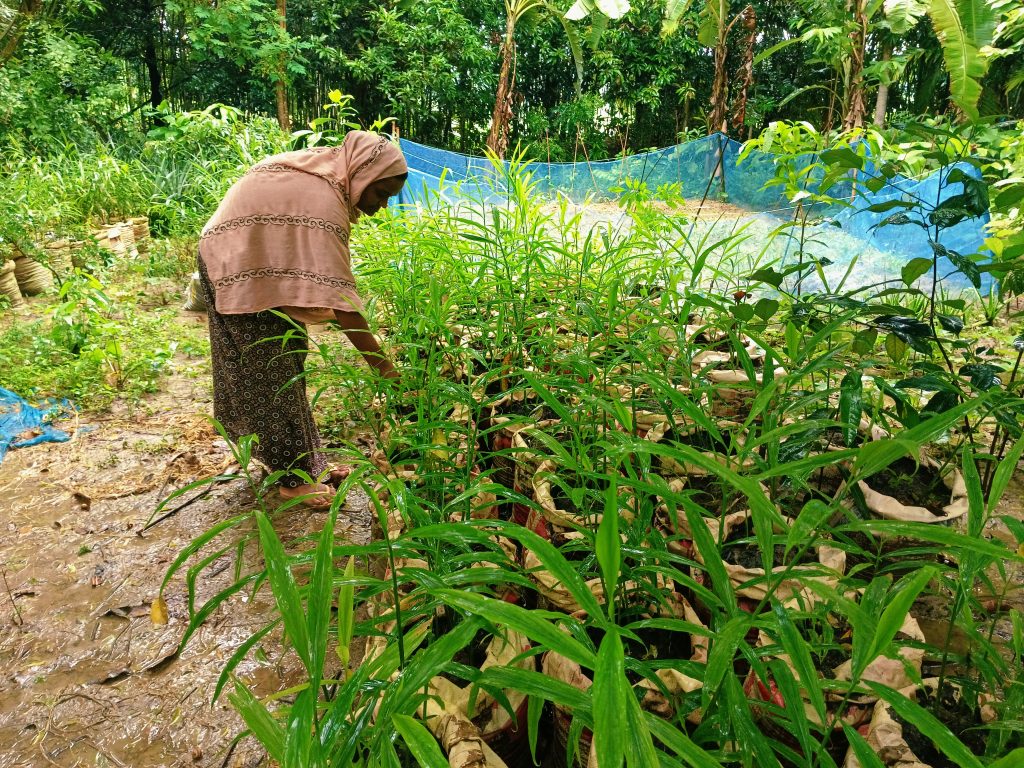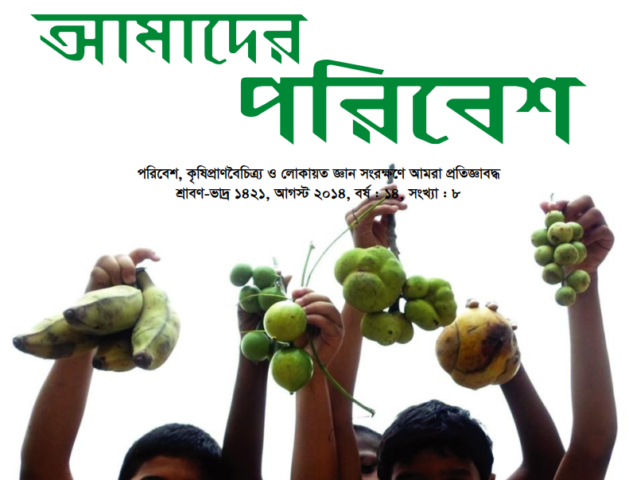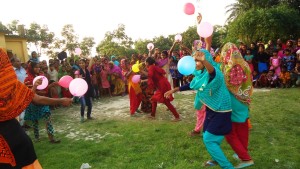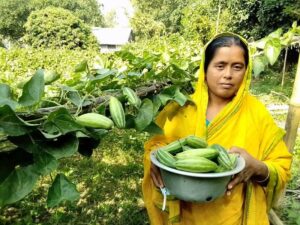By Shimul Biswas from Manikgonj
Manjuwara Begum, a 45-year-old woman farmer from Sararia village in Singair upazila, has transformed her home into a biodiversity-rich farm. She manages both her household and farming activities while raising their son and daughter. She has involved 35 percent of her homestead to diversified agricultural production, believing that the food grown on her farm will not only fulfill her family’s nutritional needs but also could generate economic profit for her.
Planting trees is both a passion for Manjuwara. Her homestead is adorned with a variety of fruit trees, including cherry, rambutan, pink jackfruit, latkan, amra, litchi, nona fruit, pomelo, chalta, wood apple, guava, mango, jackfruit, peach, gab, karamcha, amla, malta, orange, and chhabeda. Additionally, she cultivates medicinal plants such as neem, sajna, ultakmal, katakumur, tulsi, and pathar kuchhi.
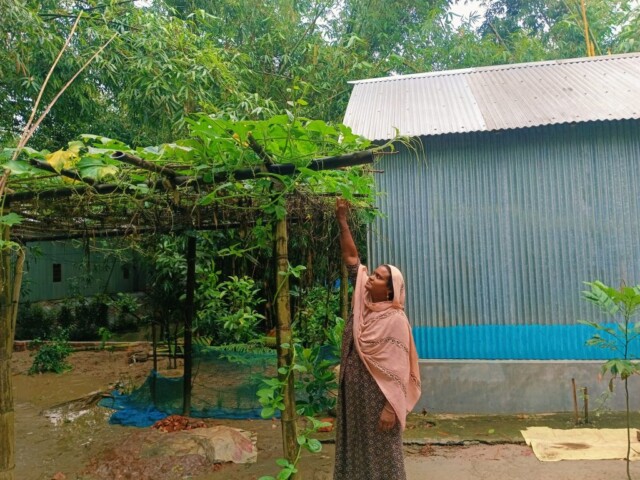
Manjuwara does not only passionate about planting trees but also about cultivates a variety of crops. She grows vegetables on her homestead and even on tree branches. She also cultivates ginger and turmeric in shaded areas alongside red vegetables, dates, brinjal, and chilies on raised beds (palan). Her homestead also includes a chicken and pigeon farm. She firmly believes that sincerity and hard work in agriculture can lead to significant profits, and growing her own food ensures safety and quality.
Currently, climate change and industrialized chemical-based agriculture are creating hardships by driving up production costs and leading to food contamination. In response, farmers in her area are shifting towards eco-friendly, farmer-led agriculture. Manjuwara said, “Most food available in the market is not safe. If we want safe food, we must produce it ourselves.”
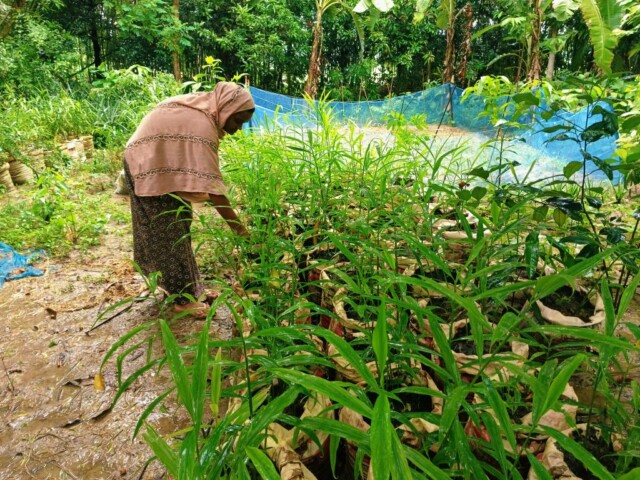
She also acknowledged the support of BARCIK in her journey, which has provided valuable knowledge on agroecological practices. As a result, she and fellow farmers Razzak Mia, Sharmin Akhter, Zafar Mia, Dalu Mia, Rina Akhter, and Shahin Alam have established family nutrition gardens known to all as Shotobari. They now produce their own fertilizers, pest control solutions, and seed stocks, significantly reducing their dependence on external markets.
This year, even after meeting her family’s food needs, Manjuwara earned BDT 20 thousand from selling surplus fruits, vegetables, and livestock products. Her success highlights the potential of self-reliant agriculture known as agroecology in ensuring food security and economic stability for rural farmers.

